#I continue to reflect on a popular DW youtuber
Text
To expand a bit on my dislike of video essays - one of the things I particularly hate about them is they prioritize video editing skills over any real knowledge of the topic being discussed or actual analysis.
#I continue to reflect on a popular DW youtuber#who once casually said something wildly antisemitic in a video#so I very politely told him so#and he responded to tell me literally everything and anything he knows about history he learned from Doctor Who#which is uhhhhhhhhh A HORRIBLE SOURCE#you are truly better off learning science from DW tbh it is more accurate than the history in it#he then republished that video multiple times with no changes made#and surprise surprise is a professional video editor so his videos look VERY good and are super well made#which of course makes him endlessly popular because at the end of the day things like smooth cuts#or being a man who has very strong opinions stated in a funny manner over well edited video#matters far more than actually knowing what the fuck you are talking about at all in any way whatsoever
5 notes
·
View notes
Text
Is Germany nailing diverse and inclusive entertainment? | Film | DW
New Post has been published on https://tattlepress.com/entertainment/is-germany-nailing-diverse-and-inclusive-entertainment-film-dw/
Is Germany nailing diverse and inclusive entertainment? | Film | DW

“Why kiss a frog when you could kiss a princess,” goes the tagline for “Princess Charming,” the self-proclaimed first lesbian reality dating show in the world that is being aired on the German streaming platform TVNOW. Modeled after The Bachelor, the show has several lesbian women vying for the affections of one woman. And for gay men, there’s the show Take Me Out: Boys, Boys, Boys to the same effect.
And then we also have the Heidi Klum-produced-and-hosted show Germany’s Next Topmodel 2021, which features trans model Alex Mariah Peter as its latest winner and Druck, a YouTube series on teenagers in Berlin that aims to represent different ethnic groups in the German capital. It would appear that German TV reflects the kind of pluralism that the country is known for around the world.
Even in the less agile world of cinema, there’s been a steady trend toward greater representation: In recent years, films like Türkisch für Anfänger (2012) — which was spun off from a TV series — and Fack ju Göhte (2013) have also tried to reflect Germany’s changing social structures. But is all this enough?

Transgender person wins ‘Germany’s Next Topmodel’
The winner: Alex
Alex Mariah Peter from Cologne became the first transgender person in the history of the show to win the competition. “Being different is much more normal than we admit to ourselves,” said the 23-year-old, who barely broached the subject of inclusion throughout the season. Speaking about future plans following the victory, the winner said, “First of all, I’m going to get a schnitzel to eat.”
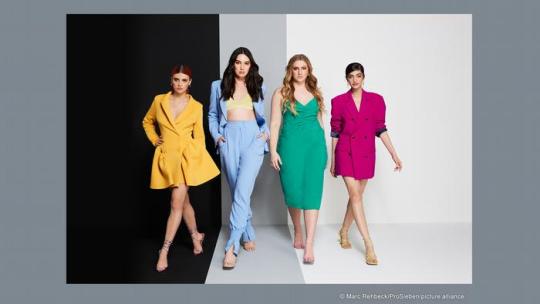
Transgender person wins ‘Germany’s Next Topmodel’
A gender-sensitive avatar
“Inclusion” is now a global catchphrase, and the show also brought it into focus by adding a ‘*’ to its logo — a symbol for diffuse gender roles. Women who were previously marginalized or left out because they were different could now present themselves on GNTM. Refugees, curvy women and transgenders — all got a chance under the spotlight.
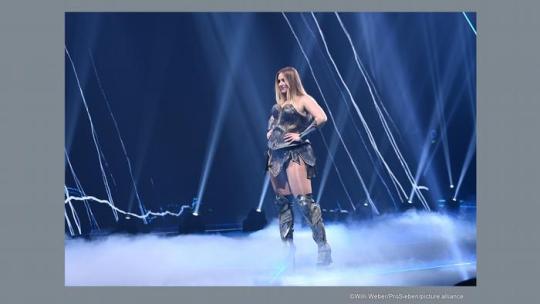
Transgender person wins ‘Germany’s Next Topmodel’
Curvy is beautiful
Ukrainian-born Dascha has been living in Germany since she was five and says she was bullied for most of her life. That’s why she didn’t just want to win but also make an important statement: “I want to be an ideal and support people who are bullied.” The confident 21-year-old weighs 85 kilos (187 pounds).

Transgender person wins ‘Germany’s Next Topmodel’
Living the dream
In 2015, Soulin and her family fled Syria and arrived in Germany via Turkey. The 20-year-old was all teary-eyed while modeling for a jeans brand: “I am the girl who could not achieve her dreams. Now I’m here and living my dream.” Soulin is now a model and made it to third place on GNTM.

Transgender person wins ‘Germany’s Next Topmodel’
Small is beautiful
At 1.68 meters (5 ft. 6.1 inches), Romina is hardly someone you would call “short,” but aspirants for GNTM need to be at least 1.76 meters tall. Romina had a very natural look for the show but earlier, she copied stars like Kylie Jenner and even got botox injected into her lips. Now she wants to support young girls who blindly follow social media trends.

Transgender person wins ‘Germany’s Next Topmodel’
Beauty beyond skin color
Sara Nuru’s parents immigrated from Ethiopia, and she says she was the first Black baby to be born at a hospital in the town of Erding in Bavaria. She was also the first Black model to win GNTM in 2009. Nuru has gone places since then and is now involved with developmental projects in her parents’ home country.
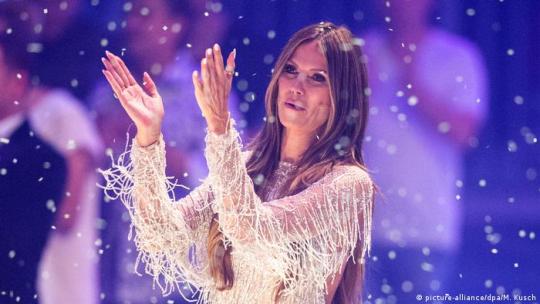
Transgender person wins ‘Germany’s Next Topmodel’
Heidi Klum’s ‘circus for models?’
“Germany’s Next Top Model – by Heidi Klum” has been on air since 2006 with the supermodel as its host. For decades, its catwalks only displayed mostly white, slim and tall women with long legs. Transgenders, small-sized women or those with curves had no chance of walking on the ramp.
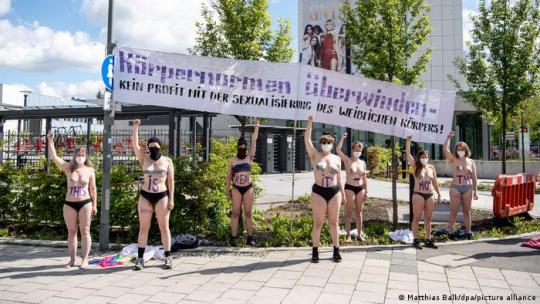
Transgender person wins ‘Germany’s Next Topmodel’
Physical beauty is skin-deep
Heidi Klum and GNTM boast loyal fans among many Germans, especially young girls, who idolize the show and its models. But critics say that teenage girls often copy anorexic models on GNTM, which sends out the message that beauty is more important than education. This year as well, feminists protested the sexualization of female bodies on the show.
Author: Suzanne Cords
German popular culture seems to be getting more inclusive, at least when it comes to acknowledging the presence and existence of LGBTQ individuals and of people from different ethnic backgrounds. But until now, television and entertainment in general have primarily stuck to stereotypes when portraying such minorities.
And there has been little public discussion on the various dimensions pertaining to diversity that issues like inclusion in society and — by consequence — the representation of minorities in television and entertainment generally should entail.
Too Turkish to be German?
“You can see that homosexuals, transsexuals and others are indeed represented in German television. Germany is much more liberal than other countries,” says actor Dean Baykan, who was born in Germany to Turkish parents. Compared to Germany, other European countries like Hungary, for example, have been very strict in their punitive attitude towards homosexuality, with a recently tabled law there practically outlawing the public representation of lifestyles that don’t fall in line with so-called traditional family values.
“But while Germany is open in some ways, in other ways it’s actually more conservative,” Baykan continues. “For example, foreigners or those with a foreign background are not taken seriously in feature films or in serious acting projects.”

Actor Dean Baykan has missed out on many ‘meaty’ roles
Baykan himself explains how he once almost scored a major role in a popular crime series on a German TV channel — but only almost. “I made it to the final round,” he said, adding that he feels that his Turkish background may have been the reason for producers deciding against him — despite the fact that he has a western first name. Whether his ethnic background was a dealbreaker or not may never be known, but actors like Baykan feel that they are not being considered for certain roles not because of an apparent lack of talent but rather because casting directors prefer when they are reduced to representing stereotypes.
‘Drug dealers, criminals and weaklings’
Filmmaker Deiu Hao Do agrees with that sort of assessment. The son of Chinese minority immigrants from Vietnam is part of the project Vielfalt im Film (diversity in film), and represents the Berlin Asian Film Network (BAFNET).
“You have Black people selling drugs, Muslims being cast as criminals, Asian women playing weak characters … But there is much more complexity to these ethnic groups, and these also need to be represented,” he told DW.
In a recent survey conducted by Vielfalt im Film, 5,500 participants said they found that such clichés were being perpetuated by the industry. Nearly 88% said that Arabs were usually represented in stereotypical ways on German television. The number was nearly 83% for Muslims in general, nearly 75% for Asians and 56% for Jews, as anti-Semitism is on the rise across many parts of Europe once more.
Born this way

German-Nigerian actor Sheri Hagen
Furthermore, 13% said they had faced bias because of their body shape and weight, while 10% of the participants said they had experienced discrimination because of their sexual identity. The study also mentioned homosexual participants saying that they had tried to hide their sexual orientation in order to improve their chances of finding work or obtaining a certain role in a film or show.
Earlier this year, 185 actors in Germany publicly announced in a newspaper article that they identified as “different” and that it was time for them to publicly acknowledge that they were gay, bisexual, lesbian, queer, non-binary and transsexual. They all demanded more visibility and representation in the German entertainment industry, having been pushed into hiding, ignoring or glossing over their identities.
Indeed, broadcasters themselves have been rather reluctant about addressing their actors’ sexual identities directly, even reflecting a sense of denial in some instances. German actress Ulrike Folkerts, for example, is a lesbian in real life but plays a heterosexual police officer in the crime series Tatort.
In a recent interview with the Süddeutsche Zeitung, she said that she had only recently been asked by the producers of the show — i.e. the regional public broadcaster SWR — to finally reveal her sexual orientation publicly. She refused, saying it was too late to do so.
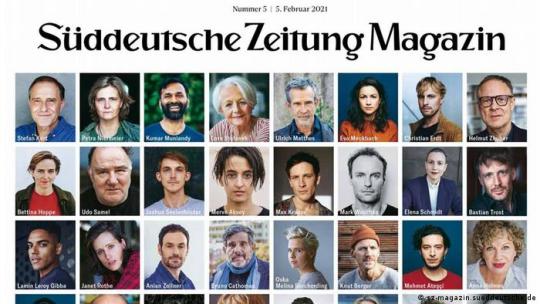
185 actors revealed their sexual identites in the Süddeutsche Zeitung
Diversity = complexity?
Actor Sheri Hagen says that the concept of diversity is not just limited to having LGBTQ stars and the token person with a non-German background being featured in a show. The Lagos-born actor moved to Germany in the early 1990s. She identifies as being a German with Nigerian roots.
Hagen has acted in films like the Oscar-winning Das Leben der Anderen or the previously mentioned television crime series Tatort, and often speaks about the importance of greater inclusion in the German entertainment industry.
“Diversity for me is not just about skin color or gender, which is what the dominant thinking in the German film industry, is” she says, adding that diversity also “includes disabilities, sexual identity, weight-based discrimination, east-west discrimination — especially here in Germany — class-based differences, ethnic differences, cultural differences, skin color and more.”
Filmmaker Deiu Hao Do agrees that in this context, it is important to understand how these various dimensions of diversity and the related aspects of potential discrimination interact with each other. Fighting this sort of exclusion is central to promoting the cause of diversity, he stressed.
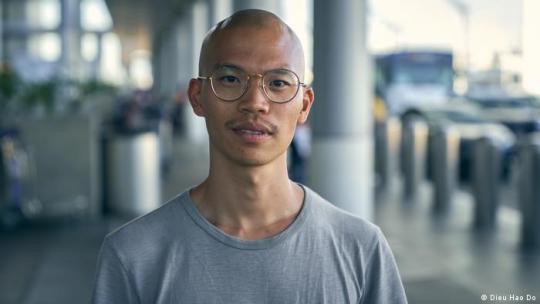
Deiu Hao Do: campaigning for inclusion
A sore lack of perspective
Streaming platforms have created alternative ways for filmmakers from around the world to showcase their work and reach new audiences. And while content from some parts of the world has certainly capitalized on this potential, these new opportunities haven’t translated into creating a greater amount of diverse streaming content coming from Germany.
Hagen says that Germany can learn a lot from best practices of inclusion currently employed in the British film industry, where shows like Bridgerton and a recent limited series on the life of Anne Boleyn, second wife of King Henry VIII, have used colorblind casting as a means to promote diversity even in period dramas.

Contemporary African filmmakers: Names to remember
Tsitsi Dangarembga
Dangarembga is not only a filmmaker but also successfully writes novels and screenplays, including for the film 1993 “Neria” that went on to become the most-watched film in Zimbabwe. In 2020, Dangarembga was arrested in Harare at a protest against government corruption and still faces trial a year later.
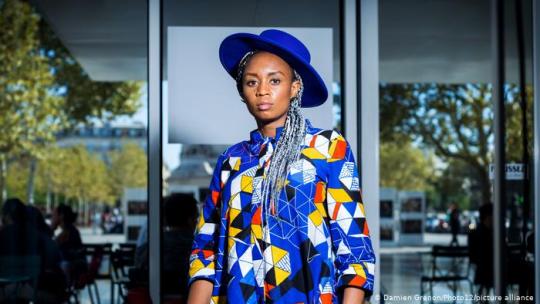
Contemporary African filmmakers: Names to remember
Wanuri Kahiu
Born in Nairobi in 1980, the director had a global cinema success with her 2018 film “Rafiki.” The first Kenyan film shown at the Cannes Film Festival, it portrays a love affair between two young Kenyan women and was banned in her home country. Kahui is now off to Hollywood, where she will direct “The Thing about Jellyfish,” based on the acclaimed novel by Ali Benjamin.

Contemporary African filmmakers: Names to remember
Kemi Adetiba
The Nigerian filmmaker, who also makes television series and music videos, is a big name in Nollywood — which is what people call Nigerian cinema, the second most productive in the world after Indian film. Commercially, Adetiba’s feature films are hugely successful. She is producing her next film, a sequel to her blockbuster “King of Boys,” exclusively for Netflix.

Contemporary African filmmakers: Names to remember
Kunle Afolayan
The Nigerian director is one of the most important representatives of the new Nigerian cinema (“New Nollywood”), which is characterized by narrative complexity, a new aesthetic — and a much bigger budget. Afolayan’s thriller “The Figurine — Araromire” (2009), one of Nigeria’s most commercially successful films, is considered to have launched the movement.
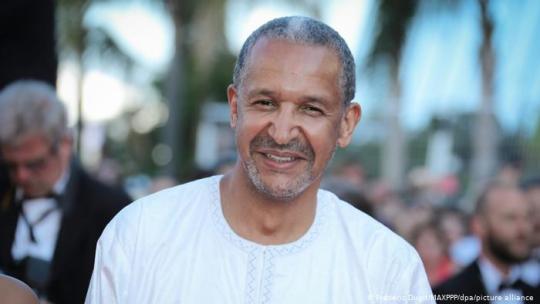
Contemporary African filmmakers: Names to remember
Abderrahmane Sissako
Sissako’s films deal with topics including globalization, terrorism and exile. Born in Mauritania and raised in Mali, the film director and producer is considered one of the best-known filmmakers from sub-Saharan Africa. His 2014 film “Timbuktu” was nominated for Best Foreign Language Film at the Oscars and won several prizes at France’s Cesar Awards as well as at the Cannes Film Festival.
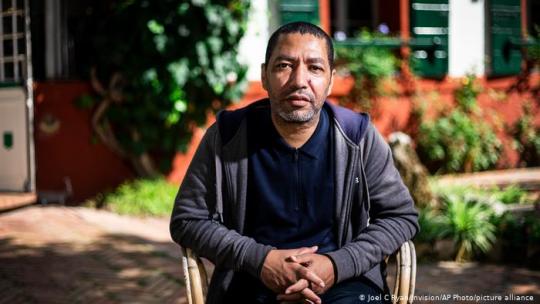
Contemporary African filmmakers: Names to remember
Philippe Lacote
The film director from the Ivory Coast most recently premiered “La Nuit des Roies” (2020) at the Venice International Film Festival. The film, reminiscent of the stories from the “One Thousand and One Nights” Arabian folk takes, tells the story of convicted criminal named Zama who becomes a convincing storyteller in order to survive at La Maca prison in the Ivory Coast capital, Abidjan.

Contemporary African filmmakers: Names to remember
Macherie Ekwa Bahango
Promising new talent: The 27-year-old director from the Democratic Republic of Congo saw her film “Maki’La” debut at the 2018 Berlin Film Festival. The young self-taught director spent three years working on her first feature film, which is the story of a group of street children in Kinshasa. The film won top prize at the Ecrans Noirs African film festival in Cameroon.

Contemporary African filmmakers: Names to remember
Moussa Toure
Moussa Toure is a Senegalese film director, producer and screenwriter and has long been a major figure in African cinema. His feature films and documentaries are often political. Toure describes his 2012 film “La Pirogue,” which tells the story of refugees’ journey by boat from Africa to Europe, as a “slap in the face of the Senegalese government.”
Author: Maria John Sánchez
Sheri Hagen says that diversity is indeed not about the token actor of color in a television series but rather about a more holistic approach. The recently aired German TV-series Breaking Even, which stars Ugandan-German actor Lorna Ishema in the main role, is a case-in-point for her. Hagen says that diversity is also about who’s writing the story, how these stories are communicated and who executes these ideas on camera.
As of today, she adds, the boards of most German media broadcasters are still “male and white” — and her assessment is, de facto, not wrong. Dieu Hao Do agrees that in order “to acknowledge the multiple perspectives in storytelling,” the German television and film industry needs more diversity, “and this is something we don’t have at the moment.”
document.addEventListener("DOMContentLoaded", function (event) if (DWDE.dsgvo.isStoringCookiesOkay()) facebookTracking(); ); function facebookTracking() !function (f, b, e, v, n, t, s) if (f.fbq) return; n = f.fbq = function () n.callMethod ? n.callMethod.apply(n, arguments) : n.queue.push(arguments) ; if (!f._fbq) f._fbq = n; n.push = n; n.loaded = !0; n.version = '2.0'; n.queue = []; t = b.createElement(e); t.async = !0; t.src = v; s = b.getElementsByTagName(e)[0]; s.parentNode.insertBefore(t, s) (window, document, 'script', 'https://connect.facebook.net/en_US/fbevents.js'); fbq('init', '157204581336210'); fbq('track', 'ViewContent');
Source link
0 notes
Text
The Rise of the Highly Unlikely Twitch Streamer
“If I’d known at the start of this year that I’d be paying a queer artist in Germany to draw a horse wearing clothes for Twitch, I’d have been like: what the fuck is going on?” says British musician Shura. The horse in question has become a regular character in Shura’s lockdown life, a shared joke that grew from a story told to fans on Twitch, where she now streams three times a week.
The streaming platform, which emerged in 2011, is still mostly known as a place for gamers. But during lockdown, creatives from music, comedy, TV and so-called “variety streamers” have taken to Twitch to share their talents and engage with fans.
Back in spring, Shura was in New York when festival performances and tour shows for her latest record forevher were abruptly cancelled. Other musicians began regular Instagram Live gigs – many unpaid. Shura did a few, but: “It was not satisfying – you’re literally performing to a wall.”
Instead, she played videogames to relax. “I knew what Twitch was, but never understood why you would want to watch anyone on Twitch,” she says.
But while researching The Last of Us Part II, Shura browsed Twitch. She came across American gamer ChellOAG and loved her stream: “I was like, maybe I should do this? There were a lot of videogame references in my first record, so by chance I set myself up really well to become a gaming musician on Twitch!”
Her followers and subscribers are, she estimates, 95 percent prior fans of her music. Twitch has offered Shura a surprising way to forge a closer bond with them: “It was like making this giant sofa on the internet where you can hang out and still have some connection with your fanbase.”
While the music industry has focused on mailing lists to reach fans, Shura feels she’s found a more effective route through Twitch and the associated Discord server many streamers use as a place for followers to chat: “It’s been weird to realise there are these other tools that musicians have previously neglected.” She’s also determined to create a welcoming environment for fans in the gaming world, which still has pockets of misogyny, racism and homophobia: “It’s important to make this safe space where people who are queer can go and not have shit thrown at them.”
Shura has done some music streams – on the one-year anniversary of foreveher’s release, she played demos, did a Q&A and piano performance. Yet even while gaming, she’s found streaming replicates the on-stage experience: “You get that same adrenaline rush. You’re performing – if you want people to enjoy themselves, you have to find ways of engaging beyond the game.”
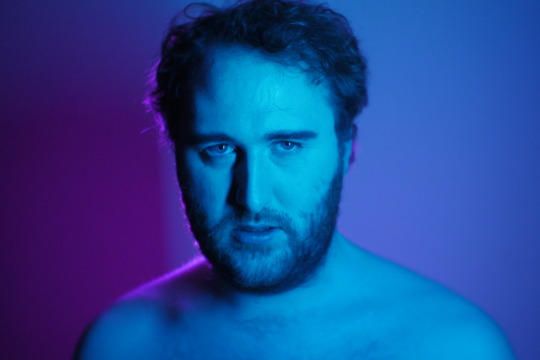
Sean Morley. Photo: courtesy of subject
Comedians also saw their schedules wiped during lockdown. Scottish comedian Limmy has streamed for years, but announced his retirement from TV to focus on Twitch. Others joined him there – Josie Long and Richard Herring, while Bilal Zafar has thousands watching him in character as a PES football manager.
Sean Morley, standup and co-host of Mandatory Redistribution Party podcast, also moved comedy onto Twitch during lockdown. At first: “I had friends do guest parts, I’d write loose plots – like a comedy play.”
But after committing to twice-weekly streaming, he realised Twitch demanded a different approach. He introduced more audience interaction to two solo streams, Meme Machine and King Morl, and recently started an interactive game, Escape the North, with comics in Manchester.
“The premise of Meme Machine is: I’m making an image for Twitter, I want to go viral, but I have no ideas,” Morley explains. “So I ask people to donate ideas, then we make memes based on that.”
Fans have immersed themselves in unexpected ways. Morley plays Creative Commons-licensed music during streams – fans made their own albums containing shared jokes and posted them on Creative Commons for Morley to find. The Meme Machine community also received a commission from composer Ben Gaunt for a video to be played at a Nottingham University symposium. “It’s one of the weirdest things I’ve ever seen, let alone made,” says Morley.
King Morl is a little different. It uses an existing game, Crusader Kings II, but the audience can modify the world. “We let the chat choose a long-form objective. They learned early on that there were non-human characters in the game. They all said: make the pope a bear.”
Months-long storylines developed. Morley uploaded past streams to YouTube so anyone could catch up: “Even when there was 30 hours to get through, people started doing it.”
King Morl recently had its cinematic finale where a bear was finally crowned pope. “People were quite emotional – they said it helped them through a really horrible year. It was sweet. You can’t get close to that vibe with an hour-long [stand-up] show.”

Claire Lim (AKA Wee Claire) on Twitch. Photo: courtesy of Claire Lim
It’s this collaborative, community aspect that Scottish TV presenter Claire Lim loves most about streaming. Lim, known as Wee Claire on Twitch, has presented for the BBC and NME and joined Twitch in 2018. She started streaming videogames, but soon tried new formats, chatting and playing interactive games – guessing someone’s age based on their teenage crush or drawing followers’ portraits.
When she got a PC, she decided to make slicker TV-style formats: “It’s a big learning curve in terms of production, but I started to go: what can I do that’s always been a dream in my little nerdy head?”
Lim now hosts various chat shows, including the Top 10 List of All Lists and How I Met Your Streamer. There’s also the Wee Marbles Federation (“by far the most popular show”), a WWE-influenced programme that layers soap opera-style storylines onto a game called Marbles.
The pandemic encouraged Lim to learn new skills – she’s improved her editing and branched into music-making, creating a Christmas EP with input from her community, the Wee Squad. “People come to watch me, but it takes on a life of itself,” Lim says. “It’s 50 percent community, 50 percent streamer. The Wee Squad have helped me through the pandemic – economically in terms of subbing [subscribing], but also in terms of belief. The power of community is incredible.”
Like Shura, Lim also works hard to create a welcoming space for fans: “I have friends from the LGBTQ+ community, different backgrounds, ethnically and otherwise, so for me it’s important that my stream reflects my values.” Moderators (Lim highlights her “dad mod” DW who’s been with her since the start) uphold these values.
While streaming helps Lim hone presenting skills, it could one day be a career in itself. “I’ve had struggles trying to get agents and producers into what I’m doing on Twitch,” Lim says. “But if you’re looking to be an entertainer, be hugely creative and not just play games… I do think Twitch could be an alternative route. As long as you know that it’s just as hard.”
Morley has also turned Twitch into an income-maker. While streaming twice a week doesn’t equal his normal comedy earnings and there’s a battle with the algorithm to be seen, the in-stream tipping function mirrors “pay what you want”, his favoured comedy payment model. “You try to make people feel they are wilfully contributing to something they want to succeed,” Morley says. “Twitch has that from the start.”
Unlike Spotify and Apple Music, “the culture around Twitch is to support creators,” Shura says. “I’m also making significantly more from my merch than if I wasn’t on Twitch. It does help support all the other avenues at a time when your job basically doesn’t exist.”
All three artists plan to continue streaming when their industries return to normal. There’s also shared hope that Twitch will continue to diversify beyond gaming. Lim’s been watching more music streamers, such as The Village Ruse, while Shura’s given Ladyhawke tips on setting up her own channel.
Lim says: “There are so many amazing people on Twitch that are way funnier, more creative, dynamic and interesting than people I see on television. Twitch is a more diverse place if you go and find it. It’s not perfect, but the more people that come to it, the better it will be.”
@ohrhealy
The Rise of the Highly Unlikely Twitch Streamer syndicated from https://triviaqaweb.wordpress.com/feed/
0 notes